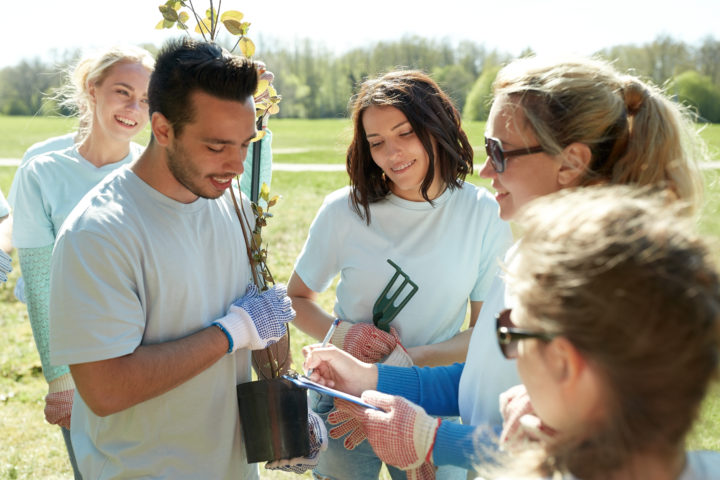Attracting Welsh Speaking Volunteers
Overview
- Introduction
- Creating opportunities for Welsh speakers
- Supporting the use of Welsh in your organisation
- Reaching Welsh speakers
- Communicating opportunities for volunteering in Welsh
- Recruitment
- Further Information
Introduction
This information page offers practical ideas on how to attract Welsh Speaking volunteers to your organisation.
The Welsh Government language strategy (Cymraeg 2050: Welsh language strategy) anticipates an increase in the number of Welsh speakers in Wales, with a target of 1 million by the year 2050.
By attracting more Welsh speaking volunteers, organisations can play their part in this national strategy, by increasing the use of Welsh in informal, social contexts and by increasing the delivery of bilingual services.
Creating opportunities for Welsh Speakers
Firstly, it’s important to identify the need within your organisation. For organisations where Welsh language is not the main language, ask yourself:
- Why you want to attract Welsh speaking volunteers
- What’s the nature of the community you serve
- What are the needs or skills of those involved (staff and volunteers)
Social Care Wales
Language Skills Questionnaire
When advertising a volunteering opportunity, make it clear what level of proficiency is required and whether in oral and/or written communication. For example, are you looking to recruit a fluent Welsh speaker for a befriending role, offer volunteers an opportunity to learn and immerse themselves in the language, or can you offer opportunities for volunteers who are looking to use Welsh occasionally.
Remember
Translation is a specialist skill and formal translation work is best undertaken by those who are qualified and paid to do this. Representing your organisation when dealing with the media can be daunting. Representatives should be offered training and briefed on what is required of them. Some Welsh speakers may feel that they lack confidence. With preparation and a discussion beforehand with the media representative this shouldn’t be a problem, especially when someone is simply ‘telling their story’.
Supporting the use of Welsh in your organisation
Show that your organisation sees the value of speaking Welsh by having Welsh materials to hand and on display and identifying Welsh speakers (using the Iaith Gwaith badge) so that members of the public, staff and other volunteers can approach them in Welsh.
It means building a culture where the use of Welsh and English is the norm, in both informal and more formal communications. In this way you can provide the opportunity for Welsh learners to improve their skills. Roles where more casual Welsh could be used may be a great chance for learners to ‘give it a go’ and become more confident. Volunteers at events could be encouraged to use as much Welsh as they are able. ‘Dysgwr’ lanyards (available to order, free of charge, via the Welsh Language Commissioner’s website with the Iaith Gwaith branding) could be used.
Reaching Welsh speakers
Volunteering is a natural part of life in many Welsh communities where traditionally people have helped each other out and been involved in their communities. Often this takes place without it being recognised as ‘volunteering’. ‘Volunteering’ is often seen as something to do with the establishment and formal organisations.
Organisations may need to take a different and sensitive approach to recruiting Welsh speaking volunteers.
- Ensure that Welsh speaking volunteers feel welcome in your organisation. This could be made explicit in your equal opportunities or diversity policy.
- A bilingual image for the organisation will reflect its commitment to treating the Welsh and English languages as equal.
- Providing bilingual information, using informal, friendly language will reflect the organisation’s commitment to providing language choice both internally and externally.
- Make your initial approach through the medium of Welsh, for example through Welsh speaking networks and groups, newsletters or social media. Some possible channels are outlined in section 5 below.
Communicating Opportunities for Volunteering in Welsh
Find out about Welsh speaking organisations in your area (your local Menter Iaith/ Language Initiative can provide contacts) and work with them to reach the Welsh speaking community, arrange meetings, exhibitions and appeal for volunteers.
For example, you could approach;
- Young Farmers’ Associations
- Urdd Gobaith Cymru (Welsh medium youth organisation – local groups all over Wales)
- Welsh Chapels and Churches
- Local schools (including Parent/ Teachers Associations)
- Welsh Learning Providers
- Merched y Wawr (Welsh women’s organisation)
- Gwawr (Welsh women’s organisation)
- Mentrau Iaith (Welsh Language initiatives)
- Mudiad Ysgolion Meithrin (Welsh medium nursery school organisation – local groups all over Wales)
- County voluntary councils (CVCs) and local volunteer centres
- Welsh medium choirs and societies.
- Local Eisteddfodau and sub-committees of National Eisteddfodau and national music festivals (such as the Gŵyl Gerdd Dant) visiting the area. The sub-committees are made up of local people.
Connect with Welsh speaking media
For example;
- Radio Cymru
- Welsh slot on local radio station
- Welsh slot in local newspapers
- Local Welsh monthly newspapers (Papurau Bro). The website of Y Lolfa publicises a list of these
- Golwg (National Welsh magazine)
- Y Cymro (National Welsh newspaper)
- Yr Herald Gymraeg (now a supplement in the Daily Post)
- S4C programmes such as Prynhawn Da and Heno.
- Golwg360
- Lleol.net
- Different Welsh pages on Facebook and Twitter, such as Radio Beca, Be sy ‘mlaen (What’s on)
- Yr awr gymraeg – Welsh language twitter hour on a Wednesday evening (#yagym)
They can search in either language, although please note that only opportunities which are posted bilingually are searchable in both languages.
Volunteering roles which offer the opportunity to speak Welsh are encouraged to use the ‘Cymraeg’ tag to enable them to be found in search results. It is helpful to add as much information in the narrative description such as “This position offers you the opportunity to use the Welsh language on a regular/ occasional basis”
Recruitment
Recruitment and selection of Welsh or English-speaking volunteers should adhere to equal opportunities practice. Try to ensure that volunteers have access to a Welsh speaking member of staff if they wish.
Volunteering is a matter of choice and volunteers should have the time and opportunity to consider whether to undertake the tasks offered them. They should feel no obligation to undertake tasks which they feel are inappropriate.
Organisations should aim to provide an induction and training courses through the medium of Welsh and English if there is a need. Welsh speaking volunteers may need training to enable them to carry out their activities through the medium of Welsh, for example, to acquire specialist vocabulary or written skills.
Further Information





